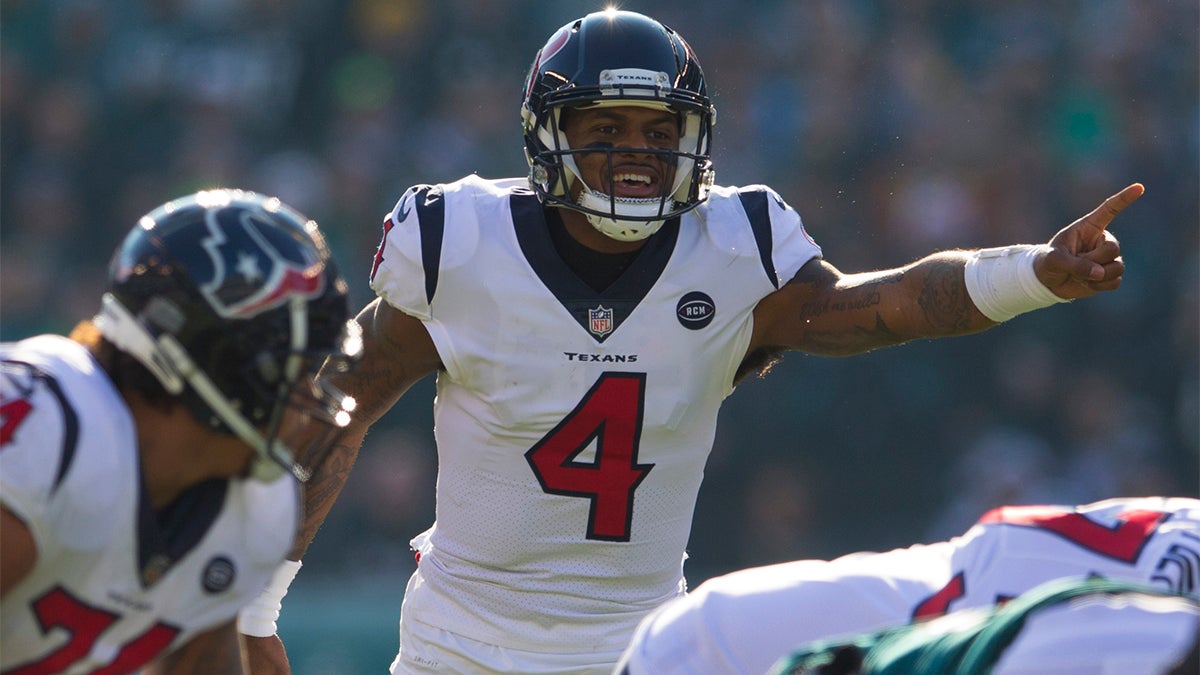Listening to sports broadcasters can be a lesson in coded language

A single word can be the smallest detail for a broadcaster. A phrase such as “natural skills” can seem like a compliment. However, it is most often applied to African-American athletes, implying they do not work as hard as their peers and get by on physical gifts.

Quarterbacks receive the most controversial comments, both pointedly racist and unintentional. A minority quarterback is more likely to be complimented on a physical attribute, such as speed or footwork. It is rare for him to receive comments on leadership or the ability to read a defense. A study conducted by Patrick Ferrucci found that the white college students who participated did not rate a black quarterback as intelligent as a white one, even when he was identified as “exceptionally intelligent.”
“There are so many studies that prove it; every single published piece of research finds the exact same thing,” said Ferrucci, a journalism professor at the University of Colorado. “It’s always a brain versus brawn dichotomy.”
One of the most overt examples these comments came in 1988 and was a spark point for change. Then a CBS television analyst, Jimmy ‘The Greek’ Snyder was fired for his remarks to Ed Hotaling of NBC affiliate WRC-TV in Washington.
“The black is a better athlete to begin with because he’s been bred to be that way, because of his high thighs and big thighs that goes up into his back, and they can jump higher and run faster because of their bigger thighs and he’s bred to be the better athlete because this goes back all the way to this Civil War when during the slave trade,” Snyder said. “The slave owner would breed his big black to his big woman, so he could have a big black kid.”
https://www.youtube.com/watch?v=WzB7IsmOegE
While the stereotypes made more than three decades ago are not as blunt today, they still exist. Commentators are more aware of the impact of this language and some take a sterner stand against the improper use of words or phrases.
Two of the most prominent voices in this change have been NBC’s Tony Dungy and Cris Collinsworth.
Dungy has acknowledged that, while there is improvement, it could just be a change in wording. Although the language is less blunt, or coded, it still implies the same thoughts.
“It’s different now, new words and new terms,” Dungy said. “Now it’s, ‘He can’t throw from the pocket.’ That’s the new way of saying it.”
“It’s a big, big deal,” Collinsworth said. “Words are a big deal.”
Collinsworth said he learned from personal experiences. Watching teammates deal with racial assumptions helped him make sure he uses proper wording to describe the athlete, no matter the race.
“I don’t make stuff up,” he said. “I’m not going to say somebody’s a smart quarterback if they’re not a smart quarterback. I don’t care if they’re black or white or green.”
While Collinsworth is recognized and paid for his words, in today’s social media driven world, anyone can make an impactful comment.
Onalaska, Texas, ISD Superintendent Lynn Redden took to Facebook after a Texans loss, blaming Deshaun Watson.
“That may have been the most inept quarterback decision I’ve seen in the NFL,” he wrote. “When you need precision decision-making you can’t count on a black quarterback.”
Redden, who later deleted the comment, resigned from his position after facing criticism, stating his comments were “not only uninformed but also hurtful.”
Texans coach Bill O’Brien came to Watson’s defense, saying he did not “want to waste a lot of time responding to outdated, inaccurate, ignorant, idiotic statements.”
While coaches and commentators are taking notice and speaking out, NFL executives are still fighting against a successful black quarterback.
Lamar Jackson, a Heisman Trophy winner as the best college football player in 2016, was told to consider playing wide receiver by Bill Polian, former NFL general manager, in order to be considered for the NFL.
Jackson continued to face questions over his ability to play quarterback in his rookie season. Baltimore Ravens head coach John Harbaugh addressed the use of coded language, shutting down questions regarding Jackson’s style of play.
“If we’re still stereotyping this way in sports, then it’s probable we’re stereotyping in real life, too, and that could have far more negative consequences,” Ferrucci said.
Deadspin pulled words and phrases from pre-draft scouting reports, sorted them by player race and counted the number of times individual words were used to describe these athletes. To search specific terms on the database, click here.
Ellie Simpson is a senior sports journalism major at Arizona State University


